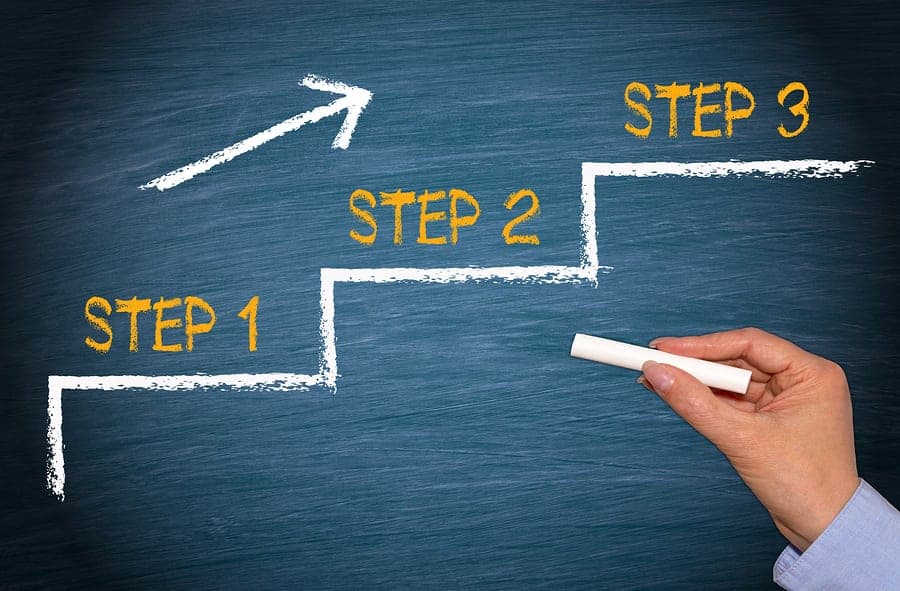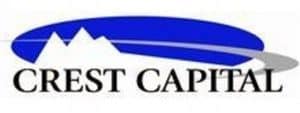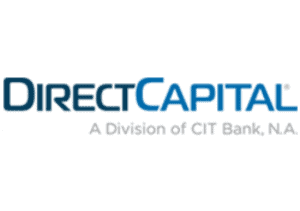19 Reasons To Get A Business Loan (And How To Get Started)

There are so many good reasons to get a business loan that you probably haven’t even considered half of them. For example, have you ever thought about taking out a loan to hire a new employee or getting a loan for the sole purpose of building your business’s credit? Those are both valid reasons to apply for business financing, and there are many other reasons that might not have ever crossed your mind.
While many small businesses are debt-averse — afraid to apply for financing because they don’t think they have good enough credit, or unsure if they can afford repayments — it’s a simple fact that you need money to make money. In some ways, living debt-free can actually hinder your business’s growth or even its ability to stay afloat. You might also be surprised at the wide variety of financing products available for almost any type of business pursuit.
Even if you’ve never applied for financing before, a business loan is definitely something to think about if you are short on funds or are considering a new opportunity or investment that could advance your business.
Read on for a look at 19 reasons you might want to take out a business loan.
Or, skip down to the “Types of Business Loans” section to see if what type of loan you should pursue for your particular business need.
Table of Contents
- 1. Start A Business
- 2. Increase Working Capital
- 3. Purchase Inventory
- 4. Purchase Equipment
- 5. Hire New Talent
- 6. Expand Products/Services
- 7. Open A New Location
- 8. Pay Taxes
- 9. Create A Safety Net
- 10. Refinance Another Loan
- 11. Buy A Business
- 12. Buy Out A Partner
- 13. Cover Construction Costs
- 14. Cover Unpaid Invoices
- 15. Buy Insurance
- 16. Cover An Unexpected Expense
- 17. Advertise Your Business
- 18. Build Credit
- 19. Take Advantage Of A Business Opportunity
- Types of Business Loans
- Do You Need A Business Loan? Next Steps
- Final Thoughts
1. Start A Business

Want to get your brand-new business off the ground with a running start? A startup loan can help you do just that. A few startup-friendly lenders will lend to brand-new businesses with no time in business, while others will want to see that you have 6 months’ worth of revenue.
However, startup loans are not by any means easy to get for spanking new businesses lacking in experience, especially if your business is still in the “idea stage.” If this sounds like you, you might consider a crowdfunded loan or small business grant in lieu of traditional financing.
|
*Checking your rate will not affect your credit score | |
|---|---|---|
2. Increase Working Capital
Working capital—the money required for day-to-day business operations—is a big reason businesses might need to apply for financing. For myriad reasons, your business may simply be short on cash. Sporadic cash flow, business growth spurts, and seasonal sales fluctuations are just a few reasons businesses apply for a working capital loan.
In many circumstances, you might not know exactly how much money you need, but expect you’ll need some extra working capital in the near future. In such cases, you might be wise to apply for a short-term business line of credit that you can draw from as needed.
3. Purchase Inventory

Businesses new and old, large and small, commonly apply for financing to cover the cost of purchasing inventory or raw materials to make products. A healthy inventory allows you to have enough product on-hand to meet demand and keep customers happy.
Retail businesses, in particular, often require financing to replenish stocks, particularly is your store sees a big sales up-tick during certain seasons. For example, a company that sells a popular holiday gift might take out a short-term loan to purchase product ahead of the holiday season, and then repay that loan with the proceeds of their seasonal sales.
4. Purchase Equipment
Almost all businesses require equipment of some sort — especially businesses involved in manufacturing, as well as those in the food and service industries. Whether you need professional gym equipment or even a business vehicle, such assets can represent a major expense to a new, struggling, or expanding business.
Purchasing equipment may necessitate a business loan, or perhaps you’d rather charge it on your business credit card if your credit limit is high enough. One popular way to buy business equipment is equipment financing, as this type of loan typically does not require any collateral other than the equipment itself.
5. Hire New Talent

According to the National Small Business Association, data going back as far back as 1993 shows a strong connection between businesses’ ability to hire employees and their ability to get financing. Indeed, payroll is a significant expense businesses must contend with, including not just wages, but healthcare and other benefits, as well as employee training. In some cases, businesses even have to reduce their number of employees or scale back employee benefits if they don’t have sufficient access to financing.
While taking out a loan to hire someone is always a risk, it’s true that employees are a business’s greatest asset; if the employee is worth their salt, they will eventually justify the expense of the loan.
6. Expand Products/Services
Businesses in the growth stage, as well as stable businesses trying to increase revenues and/or stay competitive with peers, will need to expand their offerings from time to time. Regardless of how you’re going to achieve a product or service expansion, an installment loan or another type of business loan can help you make the necessary investments to keep your offerings fresh and relevant.
7. Open A New Location

Your business is growing fast and you need to open a new location. Expanding to a new location is a major undertaking requiring a lot of capital, but one that can pay off tremendously in time.
If you have at least two years’ time in business, you may be eligible for a long-term business expansion loan with low interest rates. Businesses purchasing real estate to open a new location be eligible for a commercial real estate mortgage such as a real estate loan offered by the SBA through the CDC/504 or 7(a) loan program. There is even such a thing as real estate crowdfunding for businesses.
Or, say you own an online business and want to establish your first physical location, you might consider a startup loan to help get your new operations up and running.
8. Pay Taxes
Ideally, you will set aside enough money throughout the year to pay your business taxes when the tax man comes a knockin’. But alas, life doesn’t always work out that way, which is why small businesses frequently take out loans to pay taxes.
Rather than get in trouble with the IRS for not paying your taxes, you are much better off using a business loan or even a cash advance to pay your taxes.
9. Create A Safety Net

A safety net is a cash or credit “cushion” you can use to fall back on during slim times. Perhaps you own a seasonal business or simply have cash-flow problems from time to time; even though you don’t require any extra working capital at the present moment, you feel good knowing it’s available if and when you need it.
You’re probably especially aware of the need for a safety net if you’ve been caught without one in the past, and had to pay overdraft bank fees or get an expensive short-term loan to cover unforeseen shortfalls.
A revolving line of credit, working capital loan, or even a business credit card can all help provide a safety net for a future rainy day. If there are no rainy days on the immediate horizon, you will have some peace of mind knowing you’re prepared for anything.
10. Refinance Another Loan
While it may seem strange to take out a loan to pay off another loan, debt refinancing is a popular and sometimes necessary reason to take out a business loan. You might choose to refinance your business debt because you are offered a loan with better rates and fees, or you might choose to consolidate multiple loans into one loan.
11. Buy A Business
A business acquisition loan, or a loan to buy a business, is another popular category of business loans. You can take out this kind of loan to expand your current business’s offerings with the purchase of another business, or to buy a business even if you don’t have an existing business (in which case you will probably need a startup loan).
Depending on your business credentials, the health of the business you want to purchase, and other factors, you may be able to get a business acquisition loan through a bank or the SBA. You might also finance your business purchase through a business expansion loan or a startup loan from an online lender. There are also franchise loans available to individuals looking to purchase a new or existing franchise.
12. Buy Out A Partner

Sometimes it just doesn’t work out with a business partner. But just because your partner agrees to be bought out doesn’t mean you’ll necessarily have the money to do so. In these circumstances, you can get a business loan to execute a partner buyout.
There is not really a specific type of loan for partner buyouts but you can use many standard business loans for this purpose, including an SBA standard 7(a) loan.
13. Cover Construction Costs
Perhaps you want to expand or improve your physical business location(s) with renovations or improvements, or maybe you want to construct a brand-new building for your business. Either way, a commercial real estate loan—also called a commercial mortgage or commercial construction loan—is the type of financing you need.
You can use a commercial construction loan, typically obtained through a bank or credit union, to pay for construction costs such as labor, materials, and land development. Hard money loans are another option to pay for business construction.
14. Cover Unpaid Invoices

Businesses with a lot of outstanding invoices can free up pending earnings using a type of loan called invoice factoring.
The financer fronts you the money that your customers owe you, and then you repay them as the customers pay off their debts. With this type of financing, your business does not necessarily need to have good credit, as the invoice factor is more concerned with your customers’ credentials than with your business’s.
|
Fundbox 
|
|---|
15. Buy Insurance
Insurance is a major business expense. Business insurance requirements vary by state and industry. Liability insurance, property insurance, employee healthcare insurance, malpractice insurance, and flood insurance are just a few types of insurance your business might need. For certain business loans, you even need insurance in order to get the loan in the first place. For example, you may need life insurance and various other types of insurance to qualify for an SBA loan.
While, ideally, insurance costs will be included in your budget as a percentage of your gross sales, a business loan or line of credit can help your business pay your insurance policy during times you cannot afford to do so.
16. Cover An Unexpected Expense
Remember that safety net we talked about earlier? Well if you don’t have it, you could have no choice but to take out a loan after-the-fact to cover an unexpected business expense that you didn’t budget for. This could be anything from replacing some expensive equipment that failed unexpectedly to making repairs after a natural disaster. Fortunately, an emergency business loan can help your business cover the expense of just about anything life can throw at ya.
17. Advertise Your Business

Marketing/advertising is a business expense that can cost a lot of money upfront but will hopefully pay off in the long run. SEO and online advertising, commercials, billboard advertising, radio ads, and promotional materials are all types of marketing for which you could need a loan, especially if you’re hiring a marketing agency to try to achieve big results.
18. Build Credit
A lot of small businesses don’t have much of a business credit history, even though the business owner herself might have good credit. Taking out a business loan is one way of establishing a business credit history rather than using your personal credit for your business. Building business credit will allow you to separate your personal and business credit profiles, and will also put you in a good position if you need to ask for a business loan in the future.
For more information on this and other ways to build your business credit history read my Ultimate Guide To Improving Your Business Credit Score.
19. Take Advantage Of A Business Opportunity
Every now and again, your business may be presented with an awesome opportunity that is just too good to pass by—even if you can’t afford the whole thing up front. Business success requires a lot of pragmatism and planning, but there is also some degree of risk-taking and, dare I say it, magic. Whatever that special something is, if you get a “spidey sense” that a certain opportunity will help take your business to the next level, it can pay off handsomely to trust your intuition and go out on a limb to make that investment.
Of course, going out on a limb in this case likely means taking out a business loan. Just make sure you’re not so focused on the opportunity that you rush things and say yes to the first loan offer you come across. It’s absolutely essential to compare multiple loan offers to make sure you are getting the best deal.
Types of Business Loans

I’ve discussed many types of business loans in this post, and it can be confusing to sort through all the different loan categories if you don’t know what you need. To help simplify things, I’ve made a chart with brief explanations of different loan types discussed, and below that, I included longer descriptions of some popular loans you should know about.
| Resource | Description |
|---|---|
Startup Loan | Financing for businesses 6 months old or younger. |
Crowdfunded Loan | Funds sourced from a network of backers or investors. |
Small Business Grant | Free funds granted to businesses, normally for a specific project. |
Working Capital Loan | Financing to cover daily operating expenses of running a business. |
Business Line of Credit | A credit facility from which your business can borrow money at any time. |
Short-Term Loan | Usually a higher-interest loan that you pay back quickly, typically within a year. |
Business Credit Card | Credit card used for business expenses. |
Equipment Financing | Self-securing loan to finance major equipment purchases. |
Installment Loan | A standard type of business loan also called a term loan, repaid in regularly scheduled installments. |
Long-Term Business Expansion Loan | Usually a large, low-interest loan, repaid over 5 or more years. |
Real Estate Crowdfunding | Crowdfunded capital to purchase real estate for a business. |
Merchant Cash Advance | Expensive but quick source of business financing for merchants who need fast funds. |
Business Acquisition Loan | Loan to purchase a business. |
Franchise Loan | Loan to open a new franchise or purchase an existing franchise. |
SBA 7(a) Loan | Standard business loan backed by the U.S. Small Business Administration. |
Commercial Real Estate Loan | Long-term loan to purchase commercial real estate for a business. |
Hard Money Loan | Shorter-term real estate loan similar to a mortgage, requiring the property you're purchasing as collateral. |
Invoice Factoring | Service which converts your small business's outstanding invoices to cash. |
Emergency Business Loan | Fast loans to cover business funding emergencies. |
Installment Loan
Term loans, also called “installment loans” are a broad category of business loans. This type of funding is paid back in periodic installments, with interest. It may be a short- or long-term loan. Higher-quality term loans typically give you a longer amount of time to repay the loan, and let you pay via monthly installments (vs. weekly or daily installments with short-term loans). However, you will need at least 2 years in business, plus good credit and strong revenues, to qualify for a long-term business loan, particularly if you borrow from a bank; online lenders have less strict requirements.
Long- and medium-term loans are useful for established businesses making long-term investments in fixed assets like property or renovations, though they can also be used for working capital.
You can get term loans from a bank or credit union, though the lenders below offer reasonably quick installment loans as well:
| Lender | Borrowing Amount | Term | Req. Time in Business | Min. Credit Score | Next Steps |
|---|---|---|---|---|---|
| $30K - $350K | 10 - 25 years | 2 years | 650 | Apply Now |
| $2K - $5M | Varies | 6 months | 550 | Apply Now | |
| $25K - $500K | 6 months - 5 years | 2 years | 620 | Compare |
| $5K - $300K | 1 - 5 years | 12 months | 600 | Compare |
Short-Term Loan
Short-term business loans—installment loans that are repaid in 3 years or less, or sometimes in a matter of months—usually come in smaller amounts with higher rates when compared to long-term loans. Short-term loans also tend to require weekly or daily repayments. Although they are more expensive and less desirable than long-term loans in a lot of ways, short-term loans are relatively fast and easy to get and don’t have as stringent borrower requirements in terms of credit score, income, or time in business.
Because they have such a short repayment schedule, short-term loans are good for short-term problems, such as one-time expenses/investments.
Merchant Cash Advance
Merchant cash advances are not technically loans; rather, they are advances on your future sales or revenue. With a cash advance, you’ll receive a lump sum, which you’ll then begin repaying out of your daily credit card sales. The interest charged on MCAs is usually calculated in terms of a factor rate rather than interest rate—for example, you might have a factor rate of 1.3, which means you’ll have to repay 1.3x the amount you borrowed. A typical factor rate for an MCA is between 1.2 and 1.4.
An MCA is good for an emergency situation where you need a large sum of money quickly and/or have bad credit, but you have a healthy daily cash flow. It does not help you build business credit because it’s not actually a loan and these lenders don’t usually report to credit agencies.
Generally, we don’t recommend MCAs if you’re eligible for another type of financing, but the following cash advance providers are reputable:
| Lender | Borrowing Amount | Min Credit Score | Time To Funding | Next Steps |
|---|---|---|---|---|
| $5K-$500K | 600 | 2-5 Days | Apply Now | |
| $2K-$5M | 550 | 1-2 Days | Apply Now | |
| $5K-$500K | 550 | 1-3 Days | Apply Now | |
| $5K-$400K | 500 | 2-5 Days | Apply Now |
Business Credit Card
Business credit cards are useful the same way personal credit cards are useful—they allow you to pay for large or small expenses even if you don’t have the cash on hand, while also earning you rewards and building your credit history. Of course, you can get yourself into trouble if you don’t pay off the balance in a reasonable amount of time. With that said, business credit cards are super handy for any type of business expense that doesn’t exceed your credit limit, particularly if you can find a card with a 0% introductory rate.
| Credit Card | 0% Introductory Period | Next Steps |
|---|---|---|
| American Express Blue Business Plus | 0% APR on purchases and balance transfers for the first 12 months | Compare |
| Chase Ink Business Unlimited | 0% APR on purchases for the first 12 months | Compare |
| American Express Blue Business Cash | 0% APR on purchases and balance transfers for the first 12 months | Compare |
| Capital One Spark Cash Select For Business | 0% APR on purchases for the first 9 months | Compare |
| Bank of America Business Advantage Cash Rewards Mastercard | 0% APR on purchases for the first 9 billing cycles | Compare |
Even if you don’t have an expense looming on the immediate horizon, a business card is just good to have in case you need it.
Business Line of Credit
A business line of credit is an amount of money available for you to draw from as needed. You only have to pay back what you borrow (plus interest). Similar to term loans, you can get a line of credit from a bank or online lender. Not unlike a business credit card, a line of credit is useful to have just in case you need to make up for any type of shortfall or gap. An LOC can come in handy especially if you have a seasonal business or a business with occasional cash flow problems. Additionally, a line of credit, like the ones offered by the lenders below, can help you build business credit.
| Lender | Borrowing Amount | Draw Term | Draw Fee | APR | Next Steps |
|---|---|---|---|---|---|
| $6K-$100K | 6 months | None | Starts at 13.99% | Apply Now | |
| $2K-$5M | Varies | Varies | Varies | Apply Now | |
| $1K-$100K | 12 weeks | None | 12%-54% | Apply Now |
Invoice Factoring
Invoice financing, sometimes called invoice factoring, is when you sell your business’s unpaid invoices to a credit facility. The facility fronts you the amount of the unpaid invoice (minus a percentage they charge as a fee), and you then repay the lender as your customers repay you. Note that you do still need to repay the lender even if your customer never pays you.
Invoice financing is a useful type of financing for businesses with a lot of unpaid invoices that want to free up some cash. The borrower requirements are usually pretty relaxed, as invoice finance companies are more concerned with your customers’ creditworthiness rather than your business’s.
Equipment Financing
Equipment financing is useful for the purchase of any type of equipment or machinery your company needs but can’t afford outright. This type of “self-securing” financing does not require any collateral other than the equipment itself, and you usually don’t need to have excellent credit or much else in the way of borrower credentials. If you default on the loan you could lose the equipment, but if you make all your payments, you will eventually own the equipment.
We recommend the following equipment financers:
| Lender | Borrowing Amount | Term | Interest/Factor Rate | Additional Fees | Next Steps |
|---|---|---|---|---|---|
| $2K-$5M | Varies | As low as 2% | Varies | Visit Site | |
| Up to $10 million | Up to 10 years | Starting at 3.5% | Varies | Visit Site | |
| $5K-$500K | 24-72 months | Starts at 5% | Yes | Compare |
| Up to $250K | 1-72 months | Starts at 5.49% | Varies | Compare |
Do You Need A Business Loan? Next Steps

If you’ve decided you need a business loan, it’s time to take the next steps to secure one.
1. Compare the different types of small business loans discussed above and determine which type of loan best suits your need. Or, read more about common types of business loans.
2. Take a look at our free guide to small business loans.
3. Calculate how much you can afford to borrow.
4. Take a look at our favorite lenders.
Once you complete your initial research by taking these steps, you should have a very good idea of what to look for in a loan and which type or types of financing are best for your situation. You’re now ready to start applying!
To save time applying to multiple loans, you might consider using a lending matchmaker service like Lendio, which allows you to compare multiple loans tailored to your needs.
Final Thoughts
Applying for business financing can be daunting, given all the myriad types of loan products out there, and the possibility of being rejected for financing. You might also be worried about your ability to make payments on the loan.
However, if you have a good reason to apply for a business loan, there is a very decent chance that there is a lender willing to lend to you with feasible, realistic terms. With those funds, you’ll be able to address whatever needs your business has while building up your business credit profile with each repayment.




















